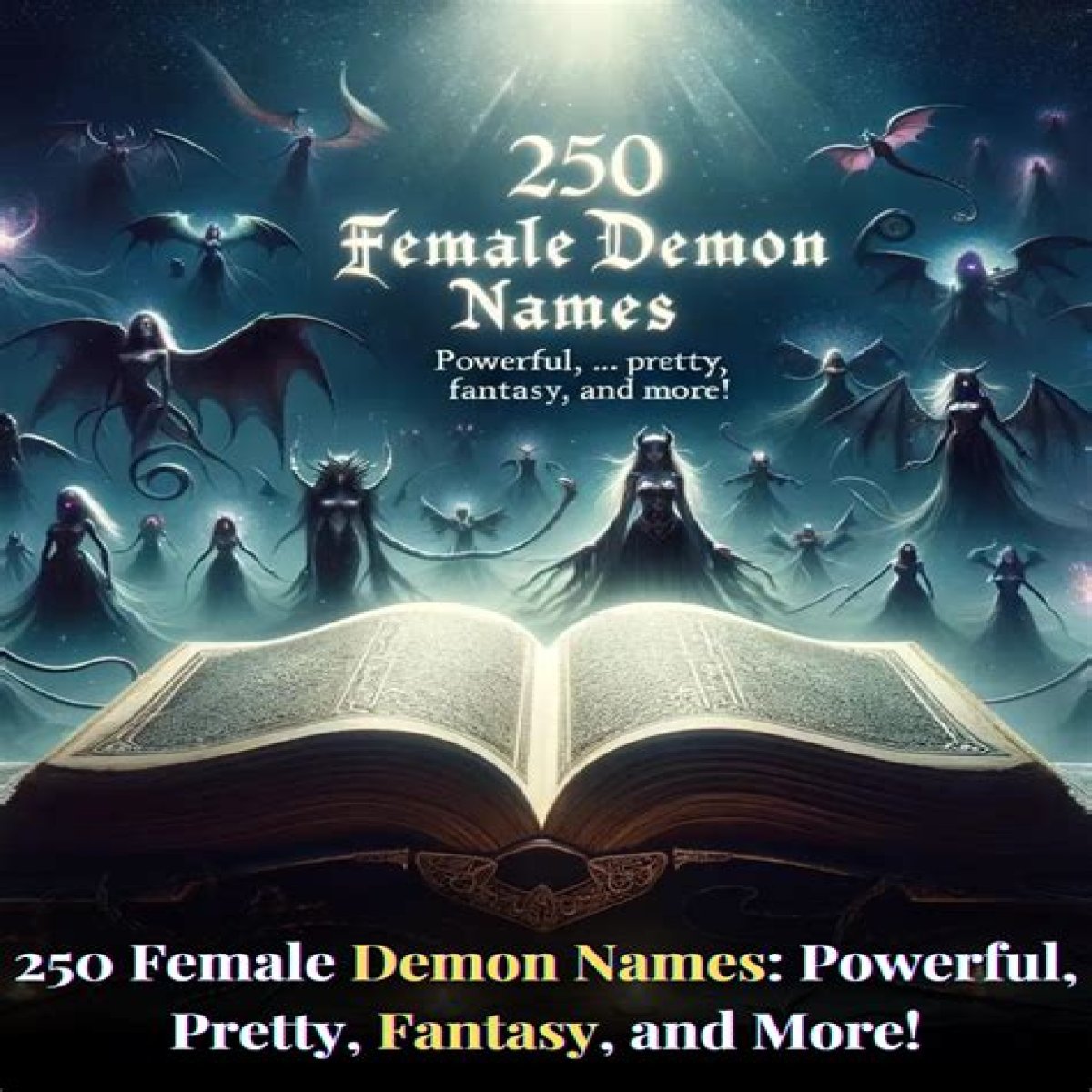Throughout history, the concept of the devil has been personified in various forms, often embodying the darker aspects of femininity. Female devil names carry with them a sense of allure, danger, and mystery. These names are not only steeped in mythology and folklore but also reflect the societal perceptions of women who defy norms and expectations. From ancient goddesses to modern-day characters in literature and film, each name tells a story of power, seduction, and rebellion.
The fascination with female devil names extends beyond mere curiosity; they can evoke feelings of empowerment and strength. By exploring these names, we can gain insight into the complexities of female identity and the roles women have played throughout history. Many of these names are associated with figures who have challenged societal norms, representing independence and a refusal to be constrained by traditional expectations.
As we venture further into the world of female devil names, we will uncover their origins, meanings, and the powerful figures they represent. Whether you are seeking inspiration for a character in a story or simply wish to learn more about these captivating names, this exploration promises to be both enlightening and engaging.
What Are Some Popular Female Devil Names?
When it comes to female devil names, a plethora of options exist, each with its own unique attributes and cultural significance. Here are a few notable names:
- Lilith: Often seen as a figure of independence, Lilith is associated with night and darkness.
- Hecate: The goddess of magic and witchcraft, Hecate represents the darker aspects of femininity.
- Succubus: A demon that seduces men, the succubus embodies lust and temptation.
- Morgan le Fay: A powerful enchantress from Arthurian legend, she is often portrayed as a villainess.
What Are the Origins of Female Devil Names?
The origins of female devil names can be traced back to various cultures and mythologies. Many names stem from religious texts, folklore, and ancient rituals. Some were derived from goddesses who were later demonized, while others emerged from tales of wicked women who defied their societal roles. Understanding these origins provides a deeper appreciation for the complexities surrounding these names.
How Do Female Devil Names Reflect Society's View of Women?
Female devil names often highlight the duality of women's roles in society. On one hand, they can represent empowerment and autonomy; on the other, they may embody fear and vilification. By analyzing these names, we can better understand how society has historically viewed women who challenge the status quo. The names serve as a reminder of the struggles women face when they assert their independence.
Can Female Devil Names Be Empowering?
Indeed, many people find strength and empowerment in female devil names. These names symbolize rebellion against societal norms and the celebration of femininity in all its forms. By embracing these names, individuals can reclaim narratives that have often been used to subjugate women, transforming them into symbols of strength and resilience.
What Are Some Unique Female Devil Names from Different Cultures?
Many cultures have their own interpretations of female devil names, each reflecting their unique mythology and beliefs. Here are a few intriguing examples:
- La Llorona: A ghostly figure from Mexican folklore, she symbolizes grief and sorrow.
- Kali: A Hindu goddess associated with destruction and rebirth, she represents the power of transformation.
- Medusa: A Gorgon from Greek mythology, her name is synonymous with vengeance and transformation.
- Freyja: A Norse goddess of love and war, her duality embodies both beauty and fierceness.
How Can Female Devil Names Be Used in Fiction?
In fiction, female devil names can serve various purposes, from character development to thematic exploration. Writers often use these names to create complex characters who challenge societal norms or embody the darker aspects of human nature. By incorporating these names into their narratives, authors can evoke powerful imagery and explore the multifaceted nature of femininity.
What Are Some Famous Female Devils in Literature and Media?
Literature and media are rife with memorable female devil characters, each leaving a lasting impact on audiences. Some notable examples include:
- The Queen of Hearts: From Lewis Carroll's "Alice's Adventures in Wonderland," she embodies tyranny and chaos.
- Regina George: From "Mean Girls," she represents manipulation and social dominance.
- Maleficent: The iconic Disney villain showcases the complexities of evil and redemption.
- Bellatrix Lestrange: From the "Harry Potter" series, she personifies fanaticism and loyalty to dark causes.
What Can We Learn from Female Devil Names?
Exploring female devil names allows us to reflect on societal views of women, the complexities of female identity, and the power dynamics at play in various narratives. These names encourage us to challenge stereotypes and embrace the multifaceted nature of femininity. By celebrating these names, we acknowledge the strength, resilience, and rebellious spirit that they represent.
In conclusion, the world of female devil names is rich with history, meaning, and cultural significance. From Lilith to Hecate, each name tells a story that transcends time and space, inviting us to delve deeper into the fascinating interplay between femininity and power. As we continue to explore these names, we empower ourselves to redefine the narratives surrounding women and embrace the complexities that make us who we are.
Exploring The Life And Mystery Of Zolotova AgeDavid Laid's Journey: The Truth Behind The Steroid ControversyDiscovering The Enigma: The Life And Legacy Of Eve Sanderson
